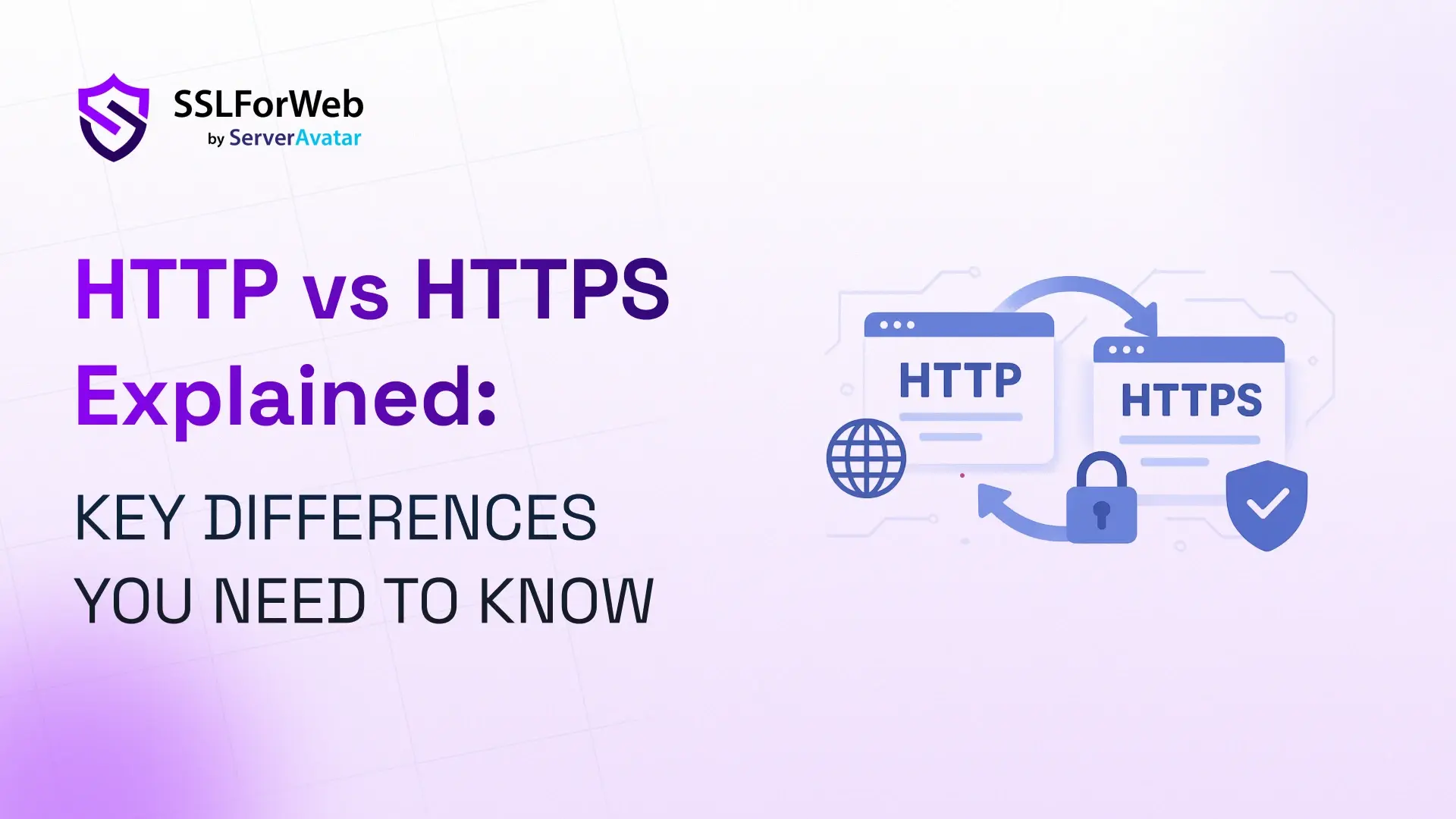HTTP vs HTTPS is a crucial topic in today’s digital-first world, where website security and performance are no longer optional. Whether you’re managing a personal blog, e-commerce store, or large-scale corporate website, you’ve likely heard about the importance of using HTTPS instead of HTTP. But what do these two terms actually mean, and why should you care about the difference?
This guide will break down HTTP vs HTTPS, explaining their key differences, advantages, and why making the switch to HTTPS is crucial for your online presence.
What is HTTP?
HTTP stands for HyperText Transfer Protocol. It’s a standard protocol that allows communication between your browser and web server. When you visit website starting with “http://”, your browser requests data from server, and server responds by delivering web page.
For example:
- When you type ‘http://example.com’ into your browser, the server sends back requested page without encrypting the data.
While HTTP is straightforward and fast, its major flaw lies in lack of security. Any data sent over HTTP is transmitted in plain text, which means hackers or malicious actors can easily intercept it.
What is HTTPS?
HTTPS stands for HyperText Transfer Protocol Secure. It is essentially HTTP with encryption, adding extra layer of security using SSL/TLS certificates.
When you see website with “https://” in the URL, it means:
- All communication between your browser and server is encrypted.
- Sensitive information (like credit card numbers, login credentials, or personal details) is protected from interception.
- The website is verified with SSL/TLS certificate, which confirms its authenticity.
In short, HTTPS ensures that your connection is private, secure, and trustworthy.
The Core Difference Between HTTP and HTTPS
The primary difference between HTTP and HTTPS down to encryption and security.
- HTTP: Data is transferred in plain text, which can be intercepted.
- HTTPS: Data is encrypted using SSL/TLS, making it unreadable to third parties.
This seemingly small difference has massive implications for privacy, trust, and search engine ranking.
Why HTTP is No Longer Safe
In the past, HTTP was acceptable because most websites didn’t handle sensitive data. But today, with online shopping, banking, and data-driven apps, HTTP is a risk.
Here’s why:
- Hackers can use techniques like man-in-the-middle attacks to steal your data.
- Passwords, payment details, and personal information can be exposed.
- Modern browsers like Chrome, Firefox, and Safari now warn users when they visit an HTTP site, labeling it as “Not Secure”.
This warning alone can scare away visitors and harm your website’s credibility.
Advantages of Using HTTPS
Switching from HTTP to HTTPS offers several benefits:
1. Enhanced Security: All communication is encrypted, protecting sensitive information from hackers.
2. Improved User Trust: Users feel safer browsing site that shows padlock symbol in the URL bar.
3. Better SEO Rankings: Google has officially confirmed that HTTPS is ranking factor. Secure websites are prioritized in search results.
4. Protection from Phishing: SSL certificates verify your site’s identity, reducing the risk of fake or fraudulent sites impersonating your brand.
5. Faster Performance: With modern protocols like HTTP/2, HTTPS websites often load faster than HTTP.
Common Myths About HTTPS
There are few misconceptions about HTTPS that need clearing up:
- HTTPS slows down websites: False, With HTTP/2 support, HTTPS is actually faster in many cases.
- Only e-commerce websites need HTTPS: False, With HTTP/2 support, HTTPS is actually faster in many cases.
- SSL certificates are expensive: Not anymore. Services like Let’s Encrypt provide free SSL certificates, making HTTPS accessible for everyone.
HTTP vs HTTPS: A Quick Comparison Table
| Feature | HTTP | HTTPS |
| Full Form | HyperText Transfer Protocol | HyperText Transfer Protocol Secure |
| Security | No encryption | Encrypted with SSL/TLS |
| Data Privacy | Vulnerable to attacks | Safe from interception |
| Browser Warning | “Not Secure” label | Padlock icon, trusted |
| SEO Impact | No ranking boost | Positive ranking signal |
| Speed | Standard | Faster with HTTP/2 |
Get Free SSL to Secure Your Site:
Free SSL certificates are usually issued by certificate authorities (CAs) like Let’s Encrypt or providers such as SslForWeb. These certificates cost nothing and can be installed within minutes.

Free Automatic SSL with Auto-Renewal by ServerAvatar
ServerAvatar is platform to simplify the hosting and management of servers and applications. It simplifies process of deploying and managing PHP and Node.js-based web applications on servers. If you’re using ServerAvatar to host your sites, you don’t need to worry about manual SSL renewal at all.

ServerAvatar provides free automatic SSL certificates with auto-renewal for your sites.

You can easily switch from HTTP to HTTPS after installing SSL Certificate using ServerAvatar Dashboard.

Future of HTTPS
The future of the web is 100% secure by default. Already, the majority of websites worldwide have adopted HTTPS. Search engines, browsers, and even regulations are pushing the shift towards a safer internet.
In the coming years, HTTP will likely be considered obsolete, while HTTPS becomes the default standard for every website.
Frequently Asked Questions (FAQs)
1. Does HTTPS improve SEO rankings?
Yes. Google has confirmed that HTTPS is a ranking factor. Secure websites generally perform better in search results compared to non-secure ones.
2. Is HTTPS slower than HTTP?
No. With modern protocols like HTTP/2, HTTPS is often faster than HTTP while also being more secure.
3. Are SSL certificates expensive?
Not necessarily. Many providers, including Let’s Encrypt and SslForWeb, offer free SSL certificates. Platforms like ServerAvatar also provide automatic SSL with free auto-renewals.
4. What happens if I don’t switch to HTTPS?
If your site still uses HTTP, browsers like Chrome and Firefox will flag it as “Not Secure”, which can scare away visitors, damage credibility, and negatively affect SEO.
5. How do I switch from HTTP to HTTPS?
You need to:
– Install an SSL certificate (free or paid).
– Redirect all HTTP traffic to HTTPS.
– Update your site’s links and fix mixed content issues.
– Using ServerAvatar makes this process simple, with free automatic SSL and auto-renewal.
Conclusion
The difference between HTTP and HTTPS is more than just a single letter. While HTTP leaves data exposed and vulnerable, HTTPS ensures security, privacy, and trustworthiness for both you and your visitors.
With additional benefits like improved SEO rankings, better performance, and enhanced user trust, switching to HTTPS is no longer optional; it’s essential.
Thanks to free SSL options and automated solutions like ServerAvatar’s automatic SSL with auto-renewal, upgrading to HTTPS is now quick, affordable, and hassle-free.
As the internet moves toward a fully secure future, adopting HTTPS today will not only protect your site but also give you a competitive edge.



